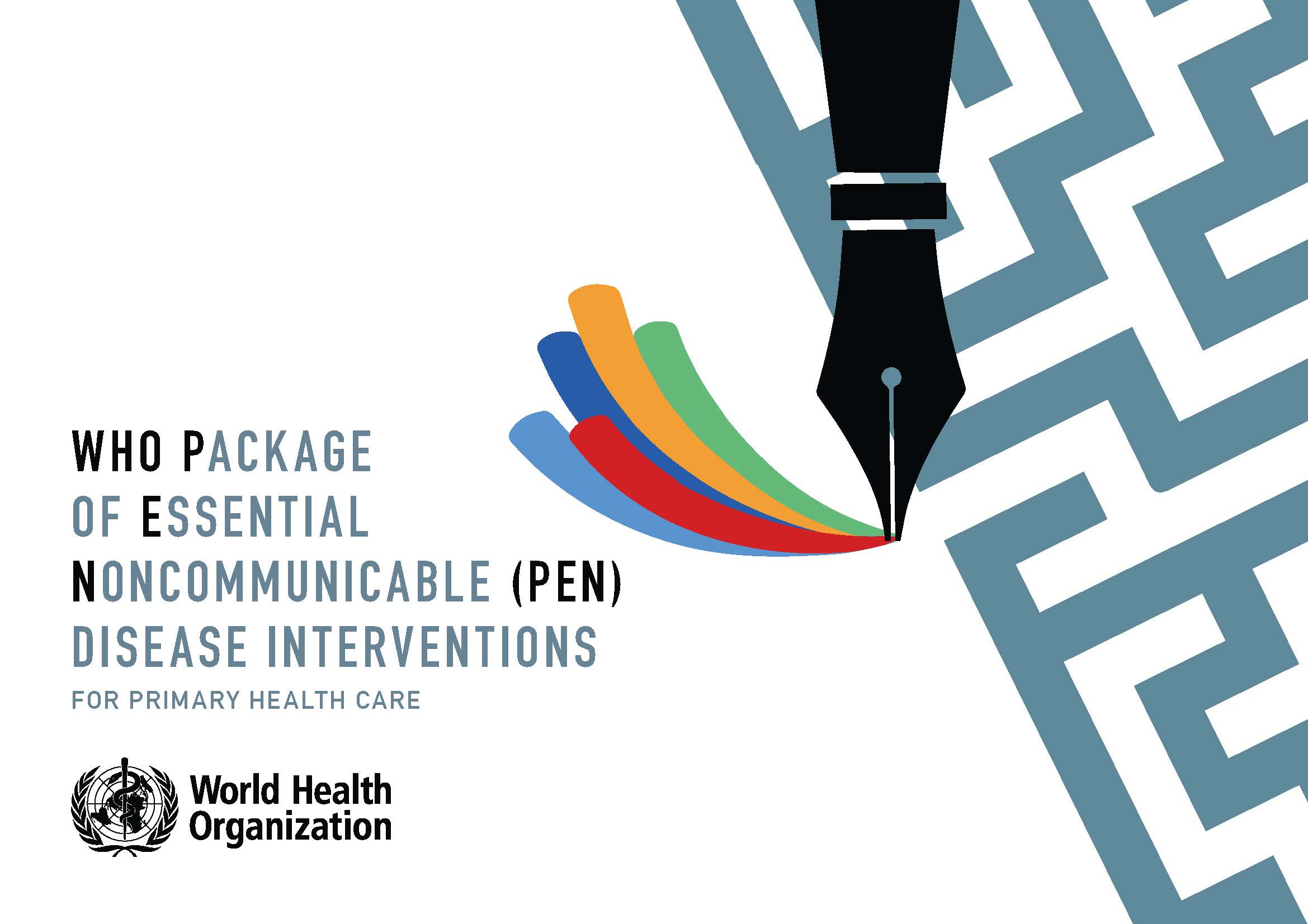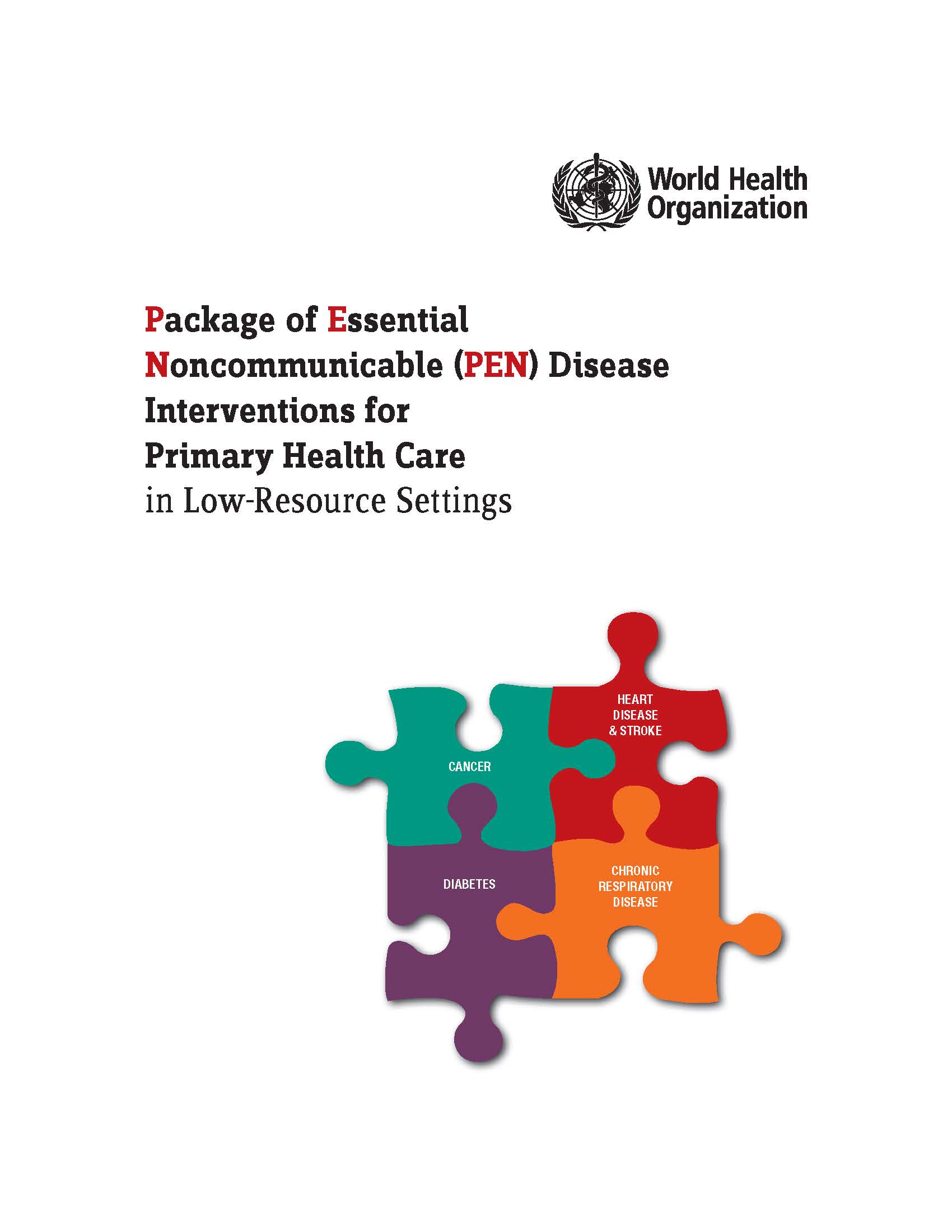
Package of essential noncommunicable (PEN) disease interventions for primary health care
Publication date: 2020
Noncommunicable diseases (NCDs), also known as chronic diseases, tend to be of long duration and are the result of a combination of genetic, physiological, environmental and behavioural factors. The main types of NCDs are cardiovascular diseases (CVDs like heart attacks and stroke), cancers, chronic respiratory diseases (such as chronic obstructive pulmonary disease – COPD and asthma) and diabetes. NCDs kill 41 million people each year, equivalent to 74% of all deaths globally.
An integrated approach is particularly important for low-resource settings for efficient use of limited resources. WHO Package of Essential NCD interventions will help to improve the coverage of appropriate services for people with NCDs services in primary care settings.

Package of essential noncommunicable (PEN) disease interventions for primary health care in low-resource settings
Publication date: 2010
The WHO Package of Essential Noncommunicable Disease Interventions (WHO PEN) for primary care in low-resource settings is an innovative and action-oriented response to the above challenges. It is a prioritized set of cost-effective interventions that can be delivered to an acceptable quality of care, even in resource-poor settings. It will reinforce health system strengthening by contributing to the building blocks of the health system. Cost effectiveness of the selected interventions will help to make limited resources go further and the user-friendly nature of the tools that are been developed, will empower primary care physicians as well as allied health workers to contribute to NCD care.




